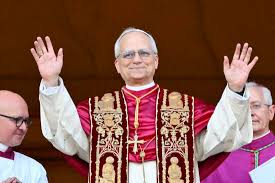
Bishops from the six dioceses in the Province of Tuam have published a pastoral message in which they reflect on the impact of Covid-19 on the parish communities in the West of Ireland, one year on from the appearance of the pandemic in Ireland.
The message comes from Archbishop Michael Neary of Tuam, Brendan Kelly of Galway, Bishop John Fleming of Killala, Bishop Kevin Doran of Elphin, Bishop Michael Duignan of Clonfert and Bishop Paul Dempsey of Achonry and is offered to the priests, religious and people of the six dioceses.
The bishops said, “All of us appreciate the efforts and the sacrifices of those in our community who provide essential services. For many people, however, the continued high level of restriction poses practical and emotional challenges. We want to say very clearly that, in the Christian vision of things, every person is essential and no person is more important or necessary than any other. When we pray the Stations of the Cross, we celebrate people like Veronica, who wiped the face of Jesus and Simon of Cyrene who shared with Him the burden of the cross. None of us can say “I’m ok” until we are all “ok”.
“As Church leaders, we have consistently supported the public health restrictions on the grounds that they serve the common good. The state has a particular responsibility for the common good and, on that basis, the Church teaches that Catholics must obey the law unless it is manifestly unjust or immoral. That does not mean that we cannot or should not speak out when we believe that something seems unfair or could be done better. We have consistently made representations, not only for the timely reopening of the public pastoral life of the Church, but also for better protection for elderly residents in nursing homes, for equity in the delivery of critical care in our hospitals and for a fair distribution of vaccines both in our own society and in the wider world.”
The bishops said that they have carefully considered the five stage plan “Covid-19 Resilience and Recovery 2021: The Path Ahead”, published by the Government last week. They said, “While we recognise the need for prudence and caution at the present time, in the light of the terrible loss of life in January and February, we accept absolutely that now is not the time for a major reopening of society, there are two things in this plan which we find very difficult to support: One of those is the fact that at level 5, all funerals are still limited to 10 people. We believe that a modest increase to 25 would, without compromising safety, bring much consolation to grieving families.
“Our second concern is that public worship is still excluded even at level 3. This would suggest that we may not have the opportunity to celebrate Mass together for months to come. It ignores the important contribution of communal worship to the mental and spiritual well-being of people of faith. The fundamental importance of Holy Week and Easter for all Christians, makes the prohibition of public worship particularly painful. While, as Christians, we are obliged to obey these regulations, we believe that it is our responsibility as Church leaders to make the case for change. We will continue to make fair and reasonable representation and we encourage you to do likewise.”
Sacraments of First Communion and Confirmation
Addressing the issue of Sacramental life in parishes, the bishops said, “In so far as the Government plan currently offers no clarity about when we might expect to return to public Sacramental life, we find it difficult to have any confidence that the Sacraments of First Communion and Confirmation can be celebrated before the end of the present school year. As of now, we have decided to defer the Sacrament of Confirmation for the 2021 class until the Autumn, and we encourage our parishes to consider doing the same in relation to First Holy Communion. Should the circumstances change for the better, this decision can be revisited in each diocese. In the meantime, we encourage young people and their parents to continue with their preparation. We have provided online resources to support what is being done through the Religious Education programme with the teachers in the schools.”
Continuing Pastoral and Sacramental Care
The bishops said, “Bearing all of the foregoing in mind, it is also important for us to do as much as we can within the current restrictions to provide pastoral and sacramental care to our parishioners. Experience teaches us that with suitable precautions, the individual celebration of the Sacrament of Reconciliation is possible, as is the sacramental care of the sick. These, together with various other pastoral initiatives, can supplement the various online outreaches that have proved so helpful and successful.”
Looking to Easter this year, the bishops said, “God’s love for us is revealed in the life, death and resurrection of Jesus, who shared our human condition, with all its joys and sorrows. As his disciples today, we can have confidence in his promise to be with us always, even to the end of time. During this season of Lent, He walks the way of the cross with us and we journey in hope towards the joy of sharing in his Resurrection which, one way or another, we will celebrate together at Easter.”
You can read the pastoral message in full on www.catholicbishops.ie.
ENDS

